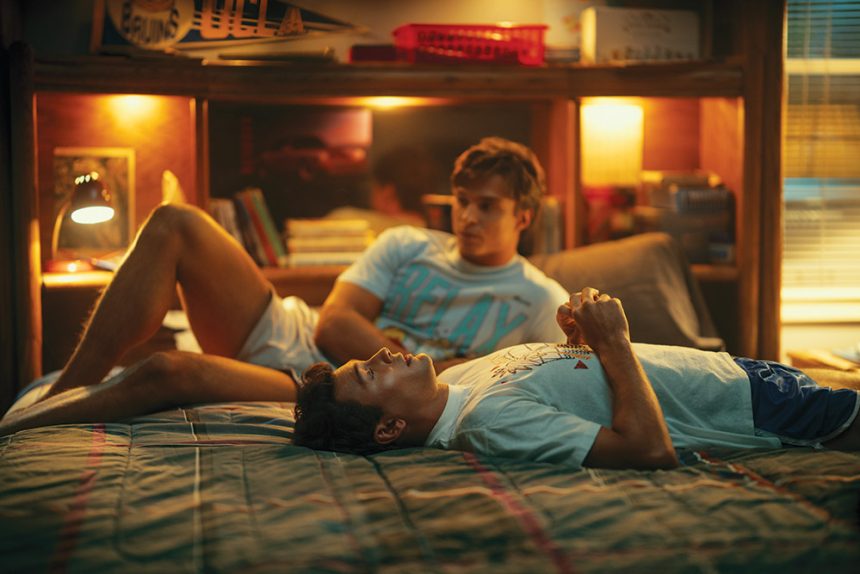‘Monsters: The Lyle and Erik Menendez Story’ Co-Creator Wants to See Brothers Paroled
Following the success of 2022’s Monster: The Jeffrey Dahmer Story, creators Ryan Murphy and Ian Brennan returned for an even more provocative second season of the anthology series with Monsters: The Lyle and Erik Menendez Story. This time, the series portrayed the 1989 double murder of Kitty (Chloë Sevigny) and José Menendez (Javier Bardem) by their sons, Lyle (Nicholas Alexander Chavez) and Erik (Cooper Koch), who alleged that their dad had sexually abused them for years. The brothers were convicted of murder in 1996 and sentenced to life in prison without parole but were resentenced to 50 years to life in May as a result of public outcry following the series, making them eligible for parole consideration. (A hearing is set for Aug. 21 and 22.) Below, Brennan tells THR why he still has questions about the case and hints at what viewers can expect in future seasons that focus on Ed Gein and Lizzie Borden.
What was it about Erik and Lyle Menendez that made you want to tell their story?
I didn’t at first; it was Ryan’s idea. I didn’t remember the Menendez brothers case enough. I was just really digging into the why behind what they had alleged. The true story, in this case, is not known and not knowable. It really can’t be discerned to a certain level of resolution. There are four people who know the truth of the story, two of them are dead, and two have remained consistent with their story, which does have a lot of holes in it and at certain points does beggar belief. So we knew we had a different challenge. There’s a lot of richness to the story, and it isn’t just about cruelty or exploitation. It isn’t murder porn, which this show could easily veer into at any moment if we picked the wrong subject.
Were there any particular details about the case that surprised you?
You Might Also Like
What surprised me was how violent what they did was. As you’re writing it, you’re picturing it. In the trial, the defense spent months trying to determine who fired first, where and who was shot first. Then to see it rehearsed on the day when Chloë, Javier and the boys were there, using guns that have no sound and you see how close they were to their parents, who were probably asleep, if not dozing, while watching TV … it’s a very cold murder.
They’re set for a parole hearing on Aug. 21 and 22. What do you hope for the brothers?
Now, people are much more prone to believe victims. Whereas, it wasn’t even in the vocabulary a generation ago. So that is good. It does run the risk of forgetting that there were two people killed. A lot of people experience sexual abuse, and they don’t do this. The law still has an obligation to set rules. What I believe about the truth of the case really changes from hour to hour. The further we went into researching this, the more confused I got, because their testimony and story throughout did involve a lot of lies. The fact that Erik was writing a screenplay that involved murdering your parents is just weird stuff. So I don’t know what I believe and don’t believe about their story. I think their story is a lot of lies, but there’s a lot of truth to it. If they were somehow not granted parole, I would be very sad. They’ve paid that debt.
The brothers criticized the show’s accuracy but later shared positive messages about what it did for them. Have you spoken to them?
I haven’t. I don’t expect I will. There’s something that feels weird about it. You’re trying to tell as close to the truth of a story as you can, but you’re also having to fill in some holes. It wouldn’t surprise me if they were annoyed by certain things we posit or allege. Sometimes, I think, you have to do that to tell a story that’s coherent and watchable, as well.
We do at certain points caricature them because we were in a different point of view. We’re seeing the version of maybe how they seemed to their parents. Maybe this is what people were describing, like, “No, these kids were nightmares, they were affluent, rich assholes.” So that’s going to be annoying. In the Halloween episode, we made Lyle mean to trick-or-treaters. He was really annoyed by that, which is actually really endearing. And for that, I was like, “Oh, I’m sorry we did that then,” because he’s right. He actually loved Halloween. But telling it that way, you get a picture of something, while not technically true, that speaks volumes. That’s just the way this anthology is and how we have to tell the story.
Do you think the controversy surrounding the show helped it land more nominations?
I don’t know. As long as they’re spelling your name right, bring it on. Ryan and I tend to do stuff that is sometimes a little bit noisy, but I think it’s just the mix of our personalities, and it probably does bring more eyeballs to it. We do like pushing a few buttons. So, I’ve made peace with being a bit controversial.
Cooper, Javier and Chloë received noms, but Nicholas was snubbed, which was surprising.
Yeah, I was surprised by that too. He’s so good. It’s tricky to be likeably unlikable, and he really pulled it off. That was the hardest role to cast. He was, not joking, the only person who could have done that role. I think sometimes people can nail a role so squarely that it seems kind of easy, but that is deceptively a really difficult role. He’s such a good sport. He’s the kind of person to be like, “That’s OK. I’m not bummed,” but I was bummed for him. It’s just nice to be in the conversation — whether it’s nine, 11 or 19 [noms] is, in a way, barely material.
There are two more seasons on their way, one about Gein and the other on Borden. What intrigued you to take on those stories next?
There are a couple of scenes of Ed Gein in the Dahmer show. So it’s not like he hadn’t been on our radar, but it was once we hit upon the idea of having part of the story be how he’s informed movies,
pop culture and television because of what he did, then it popped.
So, it ends up being both his real-life story and how his story informed Psycho, Texas Chainsaw Massacre and The Silence of the Lambs. It’s a really rich, very weird, extremely upsetting, very emotional, deeply funny season of television. I think it’s the most impressive season of television that I’ve ever been involved in. [The show bows in October.]
Lizzie, we’re just diving into it now, we’ll start shooting in like six weeks. [Note: This interview took place at the end of July.] But it’s really good. The cast we’re getting is bonkers. I should underpromise and overdeliver, but since we finished Gein and started writing Lizzie, I feel like we’re in a real groove with this, which is exciting.
In future seasons, have you and Ryan discussed exploring a case that’s been highly talked about in more recent years, like Luigi Mangione’s or Bryan Kohberger’s?
Yes, it would be lying if I said those two didn’t come up as potential subjects. We’ve thought about and investigated both of those. The main roadblock to both of those stories is that they’re not totally told yet. You don’t want to get something wrong. You don’t want to allege something that then gets overturned. I think you could do it without even knowing how it ended. That’s how rich and strange those stories are.
This story first appeared in an August stand-alone issue of The Hollywood Reporter magazine. To receive the magazine, click here to subscribe.







